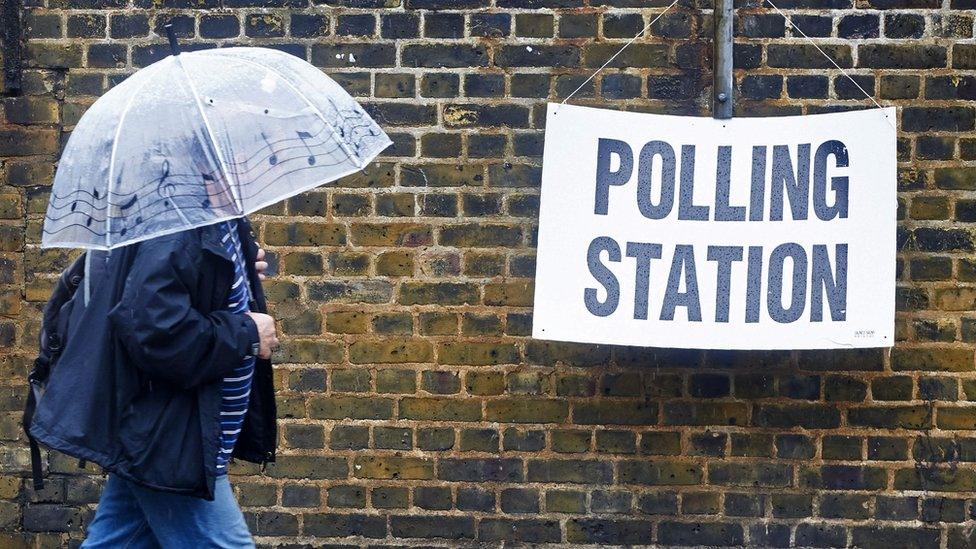Election debates: How to watch the BBC Question Time leaders' special
- Published
Question Time Leaders Special: Behind the scenes with Fiona Bruce
The leaders of four major UK parties are facing an audience in a Question Time leaders' special.
The leaders of the Conservative Party, the Labour Party, the SNP and the Liberal Democrats will take part.
Hosted by Fiona Bruce in Sheffield, the programme will air on BBC One at 19:00 GMT, and you can watch it live online, too.
Each leader will take turns answering questions from the audience for 30 minutes, with Labour's Jeremy Corbyn going first.
He will be followed by the SNP's Nicola Sturgeon, then Jo Swinson, leader of the Liberal Democrats, with Conservative leader Boris Johnson going last.
It is part of a series of debates on the BBC, ITV and Sky, as party leaders try to persuade the public of their vision for the UK.
How to follow the programme live
In the UK, it will be broadcast on BBC One and on iPlayer from 19:00 to 21:00 and streamed live on the BBC News website, where you can also follow the latest reaction and analysis on our live page.
The programme will also be broadcast on the BBC News channel and on iPlayer, with a half-hour preview programme starting at 18:30 and an hour-long programme live from the "spin room" afterwards, with reaction from specialist correspondents the Reality Check team.
It will also be broadcast live on BBC Radio 5 Live. You can listen live here or on the BBC Sounds app.

CONFUSED? Our simple election guide, external
POLICY GUIDE: Who should I vote for?, external
REGISTER: What you need to do to vote

What issues are most likely to come up?
Brexit: Three and a half years after the EU referendum, two prime ministers down and with Parliament deadlocked, Brexit remains hugely divisive. The Conservatives and the Liberal Democrats have positioned it as their key issue, with their slogans of "Get Brexit done" and "Stop Brexit" respectively. Labour's position is more nuanced. The party is promising to "get Brexit sorted" in six months by renegotiating Boris Johnson's deal with the EU and then putting that to a public vote. The SNP are pro-EU and want to stop Brexit - they have called themselves "Scotland's Remain party".
You can find out more about where the parties stand on Brexit here.
The NHS: All of the parties agree the NHS needs more money but a row is likely over whether the NHS would be included in trade negotiations after Brexit - a criticism directed at Boris Johnson by Jeremy Corbyn a number of times previously. Mr Johnson has said the NHS "will never be for sale". The Liberal Democrats' manifesto has the NHS at the fore and SNP leader Nicola Sturgeon has pledged to protect the NHS from becoming a "bargaining chip" in any future trade deals.
Climate change: We've heard a number of "green" pledges in this election so far - so this is another issue the leaders are likely to be quizzed on. Polling earlier this month revealed a potentially significant shift elevating the environment to being among voters' top priorities.
The Conservative government has already committed to cutting emissions to zero by 2050, Labour wants to "substantially" reduce emissions by 2030, the Lib Dems want to spend £100bn tackling the effects of climate change and the SNP wants net-zero emissions by 2045 at the latest.
Scottish independence and coalitions: Nicola Sturgeon is bound to talk about this issue, as the SNP want a referendum on Scottish independence in 2020. The issue will potentially be framed in the context of hypothetical coalition deals between leaders in the event of a hung Parliament, where no party has an absolute majority - the SNP's condition for joining a coalition is support for a Scottish referendum.
Both the Conservatives and the Liberal Democrats have said they would block a second vote. And Boris Johnson says a Labour-SNP coalition would be "chaotic".
If the Lib Dems were in a position to form a coalition, they have suggested they would request another referendum on Brexit - deputy leader Sir Ed Davey suggested this week his party would support the Tories if they agreed to this.
What could the leaders potentially trip up on?
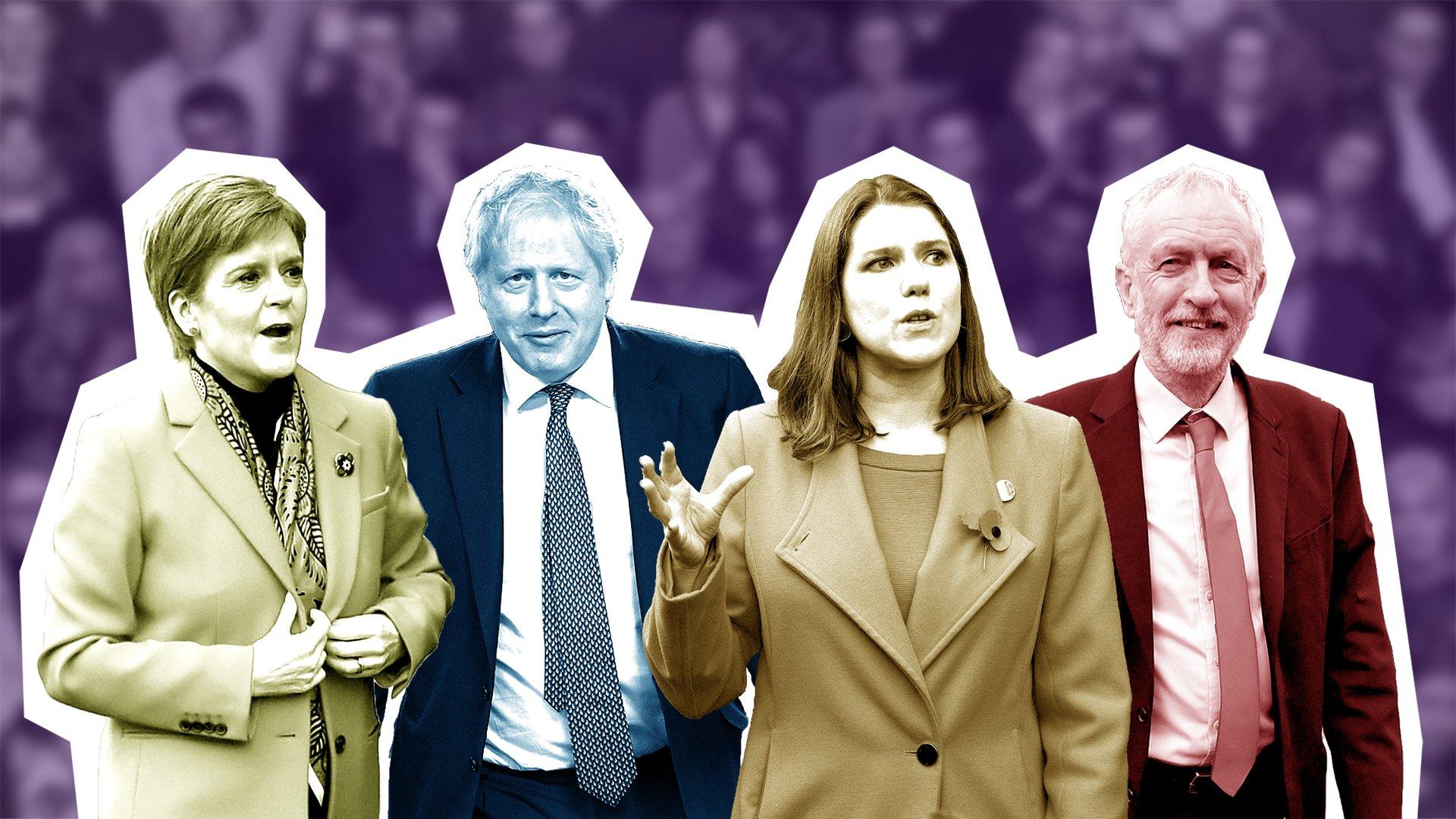
Boris Johnson: There are a few things here. Jeremy Corbyn is likely to bring up the NHS and his claim it could be included in trade negotiations by the Tories post-Brexit. And we could be reminded of Mr Johnson's failure to keep to his pledge to take the UK out of the EU by 31 October. We might also hear about internal party issues on Islamophobia and Mr Johnson's commitment to an investigation. Plus there is the ongoing row over the publication of a parliamentary report on alleged Russian interference in UK democracy.
Jeremy Corbyn: Expect the Labour leader to be criticised for his Brexit policy, as he has been before. Critics have questioned whether he would back Remain or Leave in a further Brexit vote. Also look out for questions about his party's own internal row, over anti-Semitism.
Jo Swinson: The other leaders may jump on her party's move away from earlier bold language suggesting her bid for No 10 was realistic - on Wednesday she admitted her party had been "squeezed", when asked about a dip in recent polls. She'll also likely be quizzed on whether she would block a Tory or Labour government and on how the Lib Dems would unite a country that voted to leave the EU if they cancelled Brexit.
Nicola Sturgeon: Scottish independence remains the biggest issue for the SNP leader, followed by Brexit - Scotland voted Remain. Ms Sturgeon has already said she will request a "Section-30 order", which grants permission for a new referendum from the UK government. But Mr Johnson has ruled this out if he becomes prime minister.
How is the audience picked?
The audience will be selected by the Question Time production team to reflect how people in the country have voted. People apply online or by phone and will be asked about their past voting patterns and future voting intentions, whether they're members of political parties, and how they voted in the EU referendum.
The BBC aims to represent audiences across the UK during its election coverage, so while the audience will probably be broadly local to the venue, to ensure there are sufficient supporters of all the parties some will have travelled further.
You can read more about the BBC's election debates here, and the BBC's election guidelines here.
Who chooses the questions on the night?
The production team will ask audience members to submit questions and then choose the best and most representative of these - they'll ensure there is a range of political opinions among the questioners. The first time the panel hears each question is when the audience member asks it.
Throughout the programme, audience members are also given the opportunity to ask further spontaneous questions to the panel, or, of course, to make their own comments.
How to follow the programme outside the UK
You can also watch the programme streamed live on the BBC News website. BBC World News will air the debate live from 19:00-21:00 GMT, with on-screen reaction and analysis from the BBC's Reality Check and specialist correspondents.

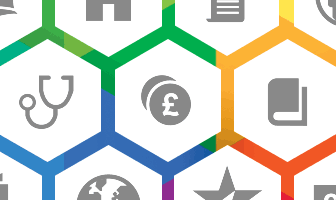
What are the parties promising you?
Here's a concise guide to where the parties stand on key issues like Brexit, education and the NHS.
- Published9 December 2019
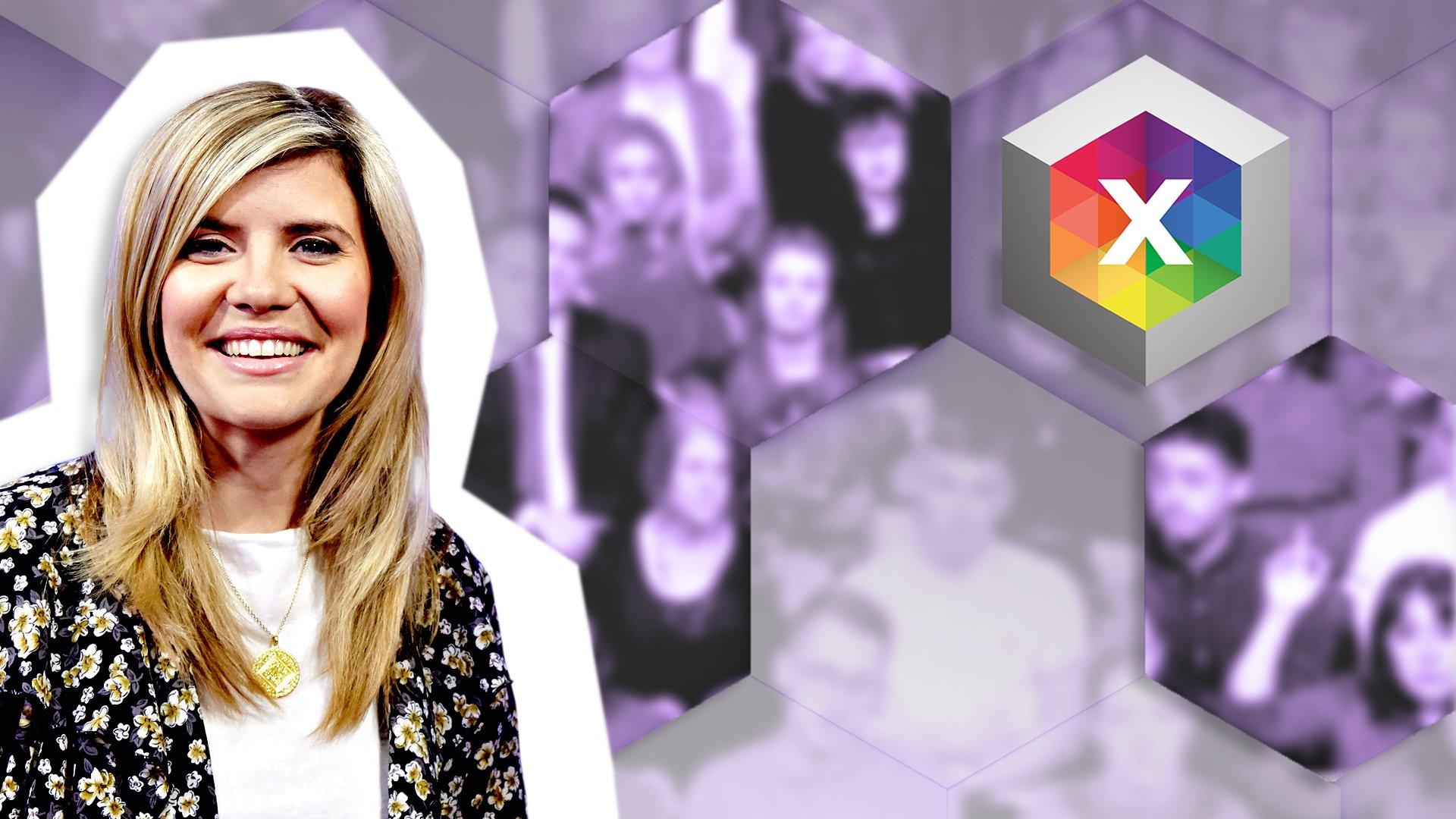
- Published6 December 2019
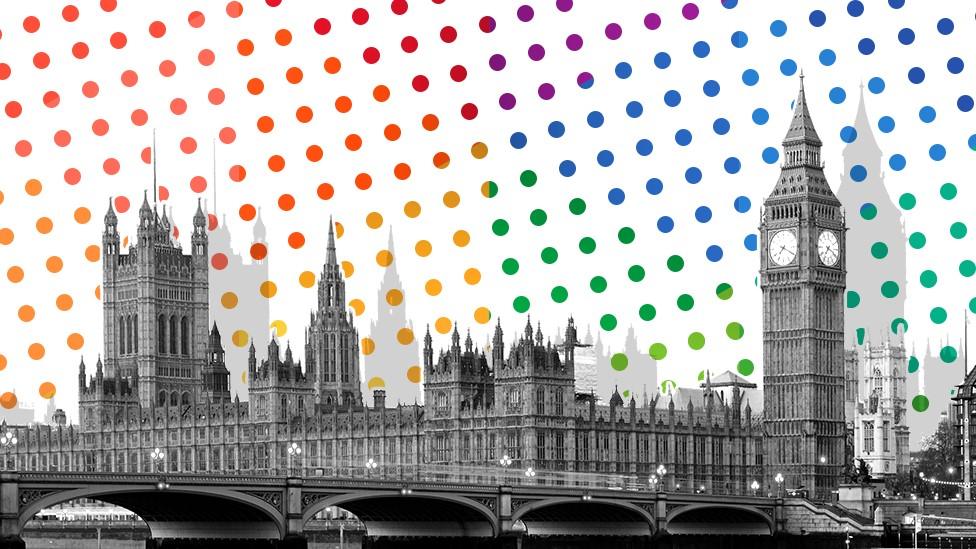
- Published20 November 2019
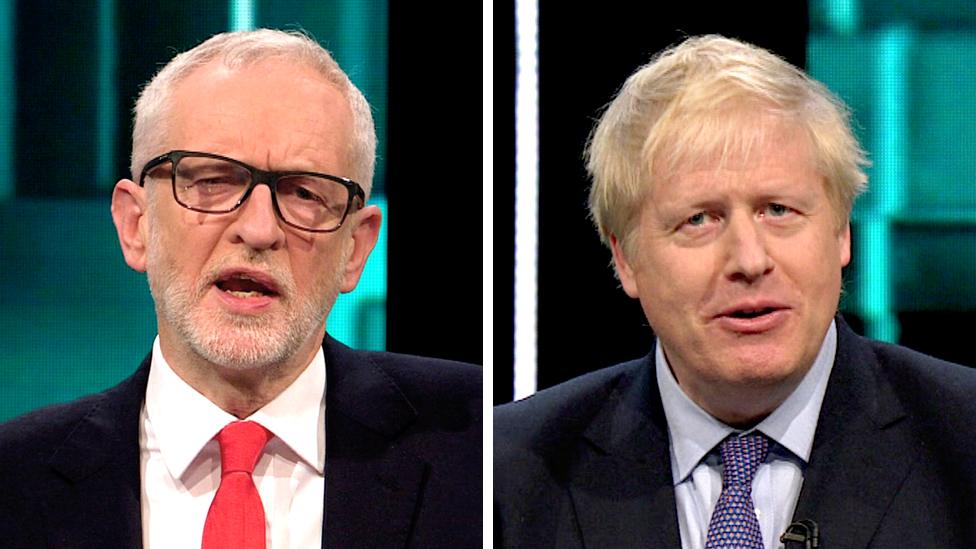
- Published8 November 2019
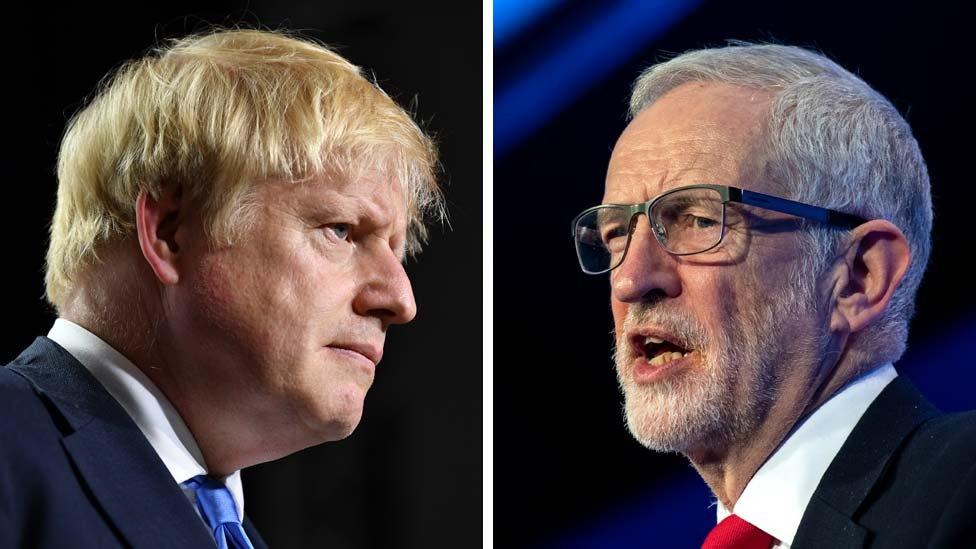
- Published27 November 2019
